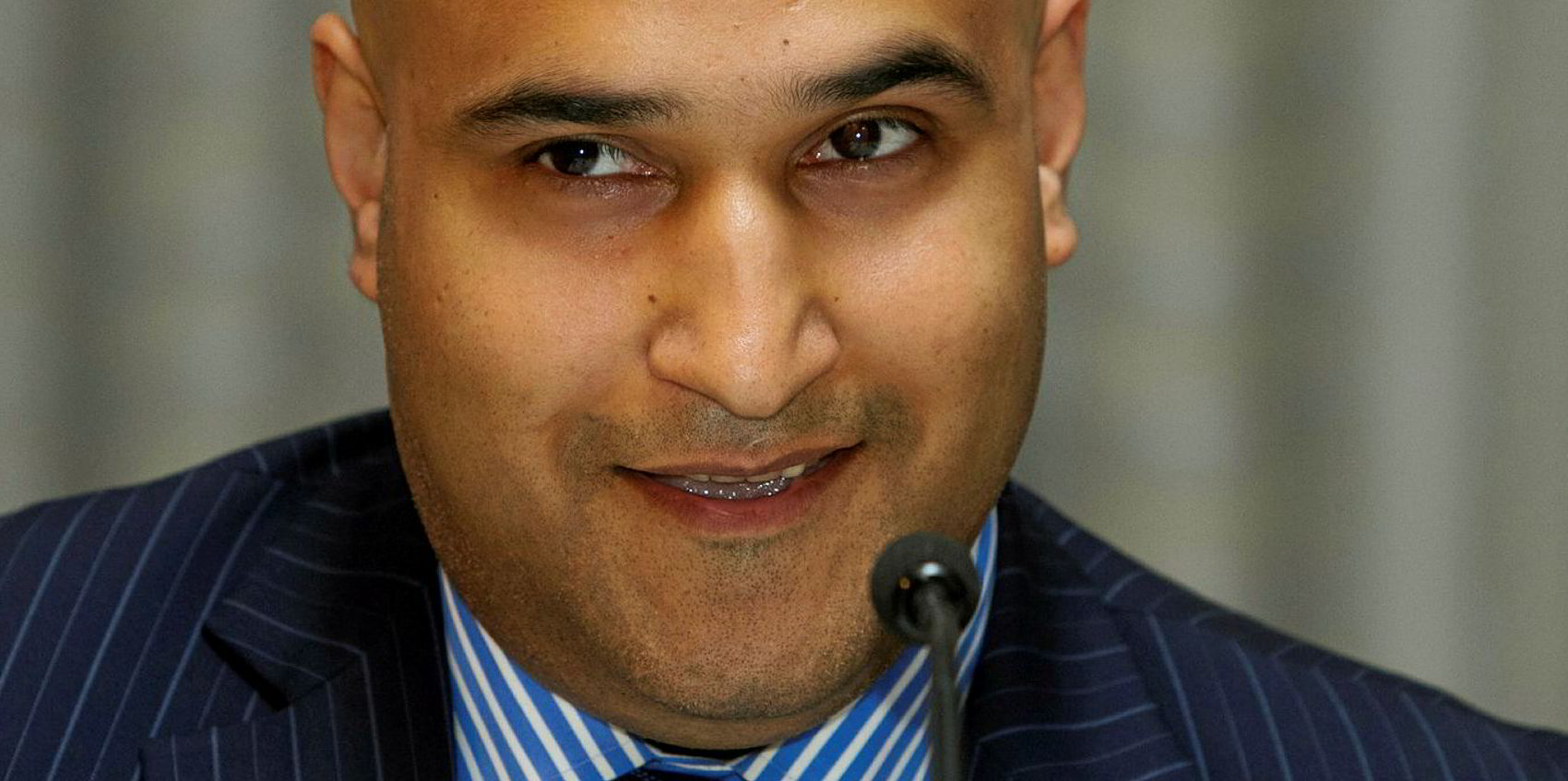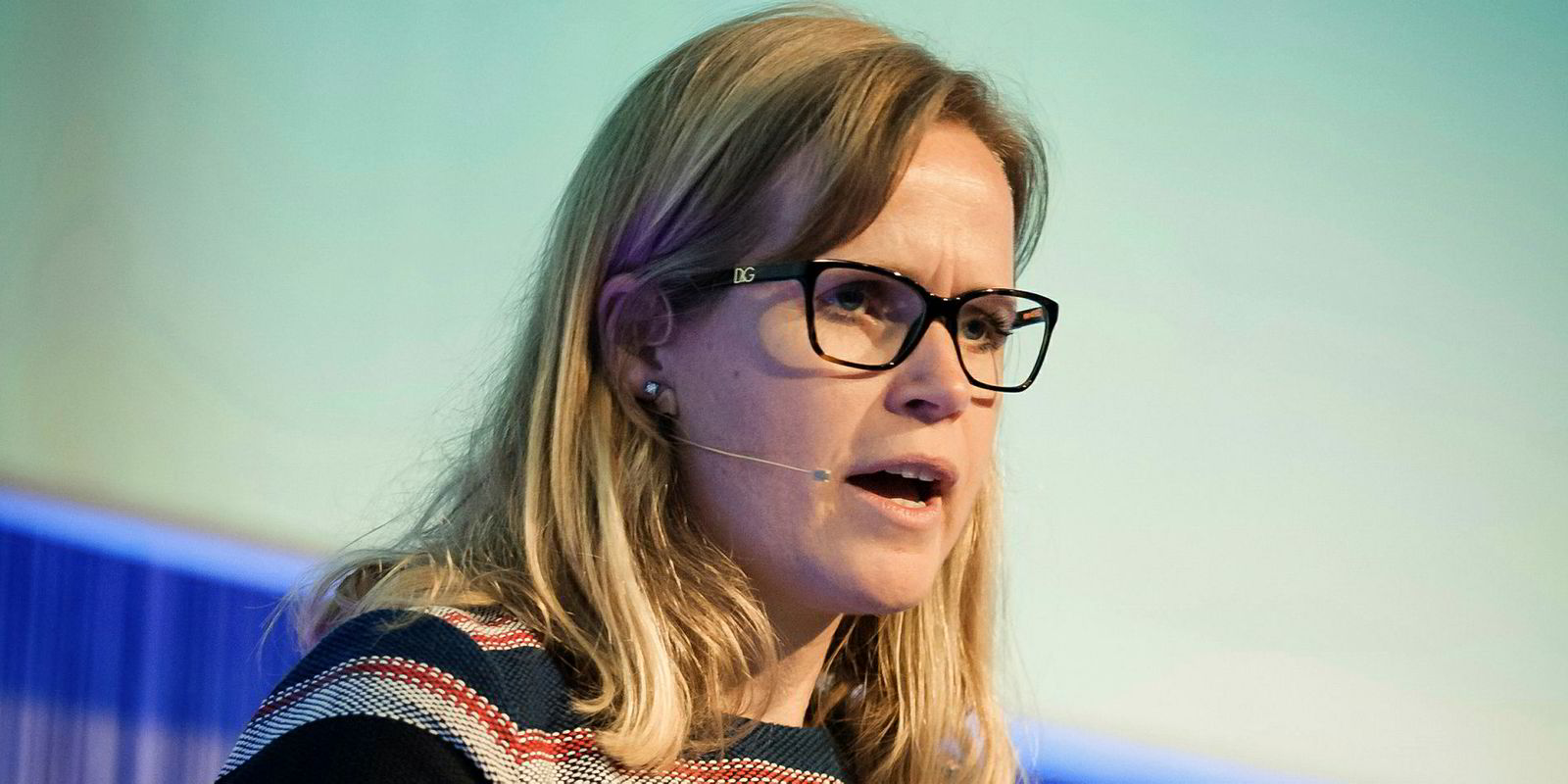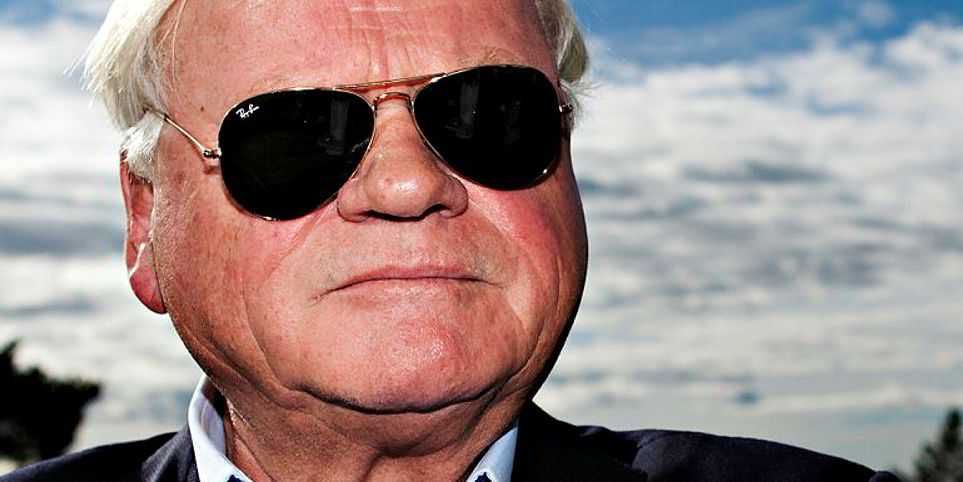All that publicly listed shipowners wanted for Christmas was their own stock. At least, it seemed that way.
Euronav, Diana Shipping, DHT Holdings, Star Bulk Carriers and Golden Ocean all announced they had repurchased their shares during the holiday season.
They joined Scorpio Bulkers and DryShips, which had done their shopping earlier in the year.
But did the buyers get good value for their money? The whole issue of share buy-backs can be confusing and their effectiveness difficult to evaluate, even for the experts.
That may be why equity analyst Amit Mehrotra of Deutsche Bank sounds a bit conflicted in trying to sort out the buy-back trend.
Positive take
Although a previous critic of buy-backs, Mehrotra offered a positive take on the recent spate in a client note earlier this month, as TradeWinds reported.
The holiday deals were "undoubtedly accretive to equity value in the near to mid-term,” he said, a reflection of both management confidence and sound economics.
Yet when TradeWinds approached Mehrotra a few days later, he was a lot more ambivalent.
While he held to the reasons for his praise, he also said owners were perhaps working against their own cause, or at least being a little quick on the draw.
“To be fair, I understand the moves, but I don’t know if I like them,” Mehrotra said.
“The first reason is that when a company buys back shares, they’re effectively decapitalising the company. They’re taking the shares away from stockholders and retiring them.
“So, for an industry that gives blood, sweat and tears trying to get shares into the hands of shareholders, it’s not clear that the right decision is to buy back the stock and retire it.”
A related issue is trading liquidity — meaning retired shares not only cease to contribute to market capitalisation, but are also, by definition, unavailable for trading. More on that later.
For an industry that gives blood, sweat and tears trying to get shares into the hands of shareholders, it’s not clear that the right decision is to buy back the stock and retire it
Deutsche Bank equity analyst Amit Mehrotra
Mehrotra’s second big reservation is timing. Given the volatility of shipping markets, are the companies taking cash off their balance sheets prematurely, even with dry bulk into the second year of a recovery?
“There’s still a lot of uncertainty out there over global trade wars and economic slowdown — the industry enters recovery for two minutes and they’re buying back stock,” he said.
Buy-back reservations
“This industry has taught us that cash is a very precious commodity. It’s not clear to me that we’re at the point in a recovery where there is a lot of expendable cash. Would some companies be better off if they waited a year?”
With reservations like these, it is necessary to remember that Mehrotra praised the recent buy-backs.
Besides the issue of owners expressing confidence, there is also the maths that says when companies buy back shares that are trading well below their net asset value (NAV), this is good financial management.
Virtually all the shipowners taking advantage of the recent buys are trading at significant discounts to their NAVs, so why not take back shares and draw a floor under the share price?
This is also complicated, according to one financial executive whose company has bought back shares.
The key is to carry out buy-backs with proceeds from the sale of vessels, rather than using cash sitting on the balance sheet or, even worse, from borrowed funds, he said.
Vessel sales
“It’s pretty clearly a profit-making exercise to sell a leveraged ship, take the net proceeds after repaying debt and buying back stock at a discount to NAV, as confirmed by the ship you’ve just sold,” he said.
“It’s financially indisputably a good thing. And I think it’s what we’ve done and what others in dry bulk also have been doing. You don’t want to borrow money or take cash off the balance sheet to buy back stock, because then you are making the balance sheet more leveraged and risky.”
Diana, Star Bulk and Golden Ocean Group all have sold at least one vessel within 2018. On the tanker side, so have Euronav and DHT.
The only negative in the equation is that, as Mehrotra noted, trading liquidity will still be diminished.
“He’s not wrong about that,” the executive added. “When you buy back stock in a small-cap shipping company, you are buying it back from the most liquid pool of shares almost by definition, so impacting liquidity as directly as possible — so not ideal.
“It does impact market cap and liquidity negatively, and that is why — net net — it’s debatable just how positive stock buy-backs actually end up being.”
Of the companies recently buying their own shares, only Euronav has a market capitalisation in excess of $1bn — it is at $1.65bn this week. Its average volume is about 622,000 shares per day in New York.
Two more shipowners are just shy of the $1bn mark. Golden Ocean is worth $980m, but trades only about 169,000 shares daily in New York. Star Bulk has share capital of about $955m, but a higher daily volume of 674,000.
Insider shareholdings
Both companies have large insider shareholdings, with John Fredriksen’s Hemen Holdings owning more than 35% of Golden Ocean, and private equity’s Oaktree Capital holding more than 48% of Star Bulk.
Another recent buyer is Greece’s Diana, which has a relatively small market capitalisation of about $388m and trades 323,000 shares a day.
Diana last month spent $15m on share buy-backs, but was forced to pro-rate the offer when the demand to get out of the stock at $3.60 per share was more than double its allotted budget.
As the Diana deal underscores, most of the recent transactions have been relatively small.
According to Deutsche Bank figures, Diana bought back 4% of its stock. Other ratios were smaller: Star Bulk at 0.4%, Euronav at 0.2%, Golden Ocean at 0.3% and DHT at 0.9%.









